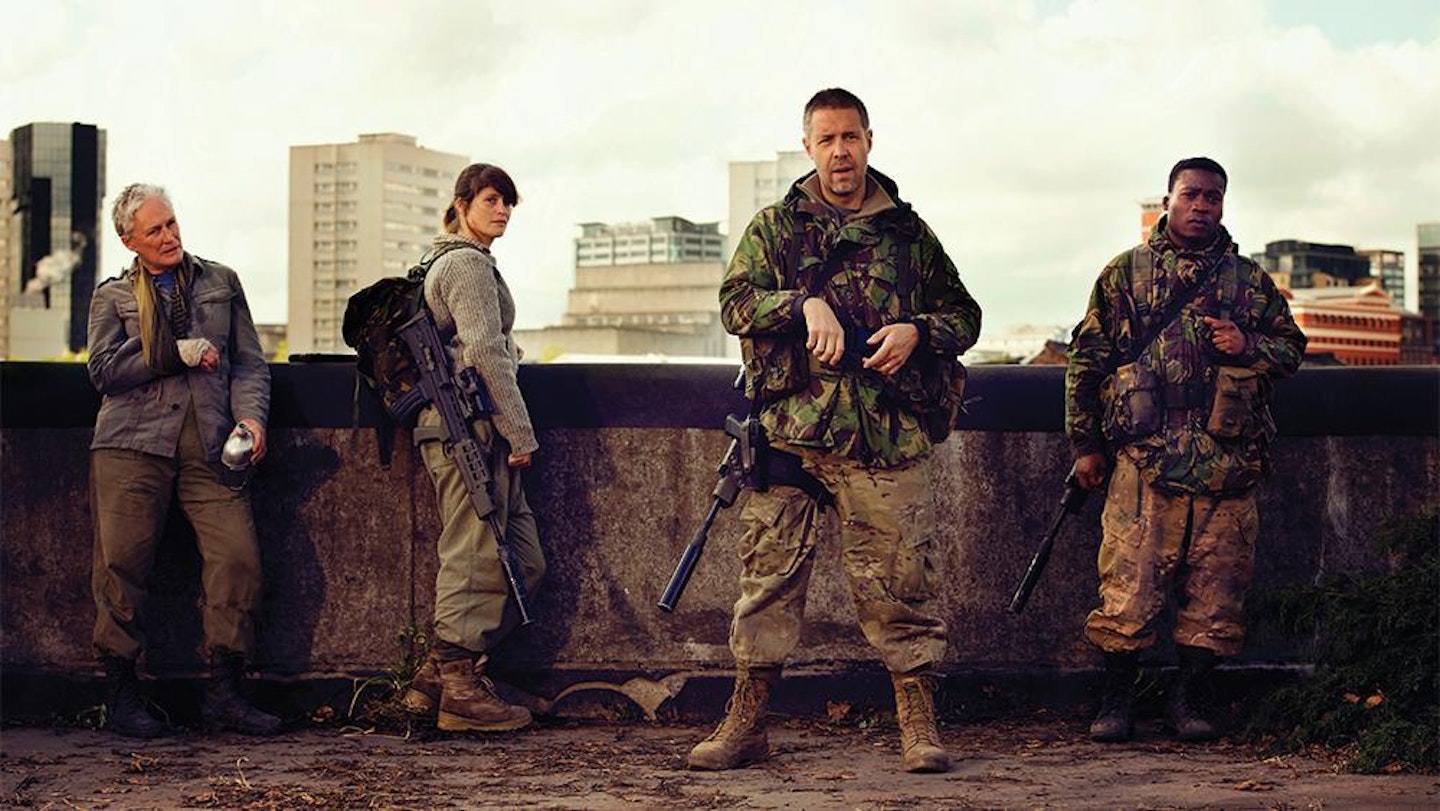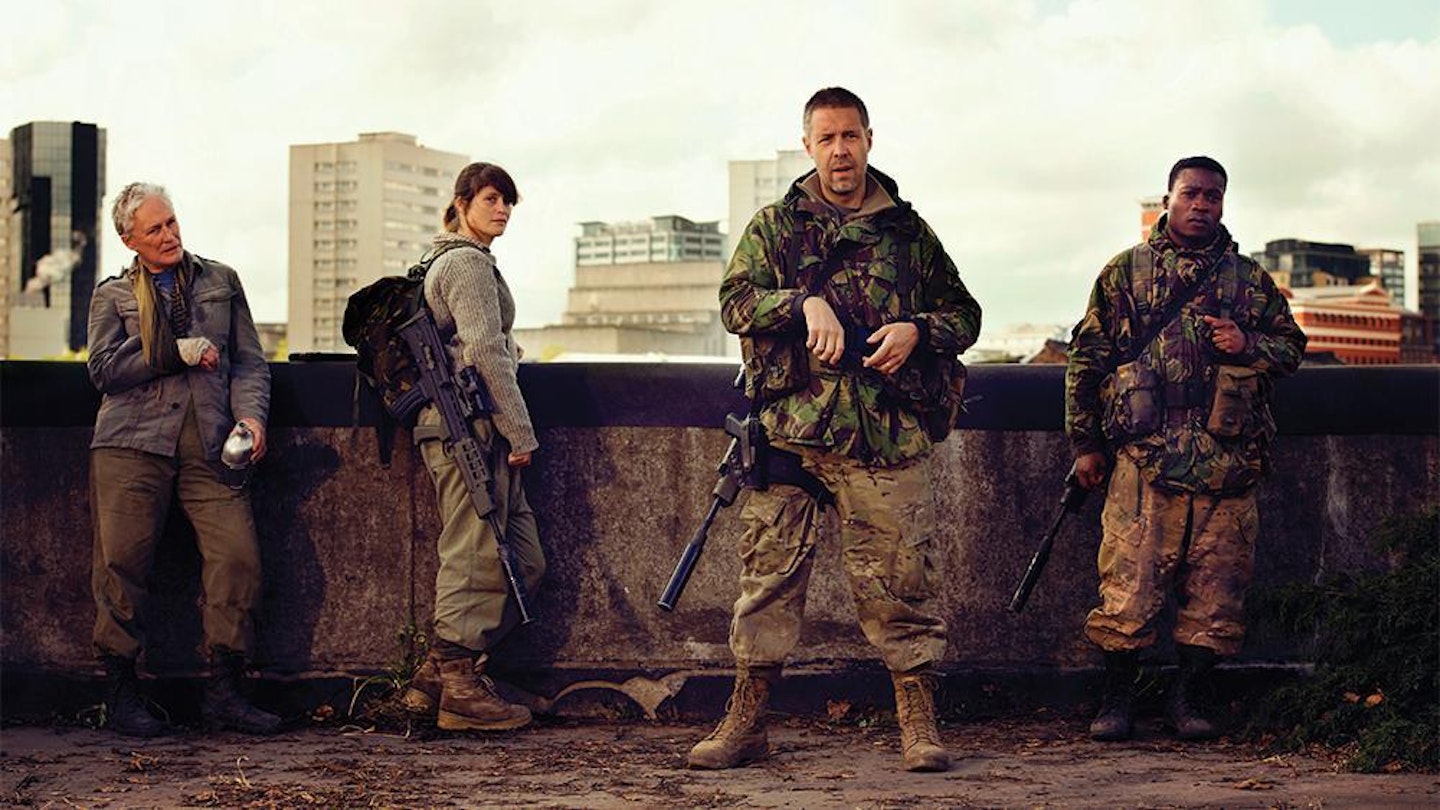The Girl With All The Gifts opens with a young girl called Melanie (Nanua) lovingly examining a photo of a kitten in a bare, concrete room. Her morning alarm — a siren — sounds, someone bangs on the metal door, then she’s restrained, at gunpoint, before being trussed in restraints like a diminutive Hannibal Lecter before being wheeled to class. It’s a startling, upsetting beginning to an adaptation of a novel about a teenage heroine that makes The Hunger Games look like The Care Bears Movie.
The best zombie-ish apocalypse in years.
Why is this polite, perky kid treated like a monster? The answer unfolds as we meet a sympathetic teacher, Miss Justineau (Gemma Arterton), a sometimes brutal guard, Sgt Parks (Paddy Considine), and single-minded researcher Dr Caldwell (Glenn Close). An infectious fungus has reduced most of humanity to ravening flesh-eaters called ‘hungries’ (not as far-fetched as you might hope; Google “zombie fungus” and prepare for nightmares) who become frenzied at the smell of uninfected blood. Dr Caldwell suspects that Melanie and her kind — infected, but still conscious, children — may hold the key to a cure. But their fortified base is breached before Caldwell can finish her work, and a small party, including Melanie, find themselves running towards a safe haven.

This film is rooted deep in the zombie genre, from Romero’s meaty social commentary to 28 Days Later’s depiction of fast ‘infected’ in a derelict London to the killer fungus of The Last Of Us. But the tense atmosphere has more in common with the bleak, British sci-fi of Threads or The Day Of The Triffids than with some of the more bombastic American catastrophes. Still, while Mike Carey, adapting his own novel, has crafted a believable apocalypse, he and director Colm McCarthy (in only his second feature) use it principally as the backdrop to a moral story about complex, compromised characters.
Close, Considine and Arterton are established quantities, of course, and there’s further able support from Fisayo Akinade and Anthony Welsh. But it’s Nanua who proves the secret weapon. Her Melanie is bright and eager to learn, but more attentive and analytical than the adults sometimes realise. The combination of childlike delight in this brave new world and sometimes violent cunning is brilliantly balanced.
Behind the sunnier scenes as she naively explores her new surroundings lurks a classic conflict between individual and group needs. Humankind may benefit if Caldwell studies Melanie, but Melanie would not survive the procedure. And as the small group of survivors finally get the chance to see her as a person rather than a lab rat, their relationships change. Parks, in particular, shifts from open hostility to a guarded sort of mentoring, while Caldwell visibly begins to doubt her own assertions that Melanie is not a real child at all. Justineau becomes almost a mother figure to the lonely girl, but has trouble dealing with the devastated environment outside.
Makes The Hunger Games look like The Care Bears Movie.
Despite their growing camaraderie, all the adults are still afraid of the youngster, and if this is an allegory, it’s only barely. Teens all half-suspect, deep down, that their elders would prefer them restrained, while adults are equally scared that their offspring will supplant them. That inter-generational mistrust is reflected here in surprising ways as Melanie grows in her new environment. The slowly unfolding apocalypse around her would justify a certain level of despair — but Melanie’s gift, amid the devastation, is to hold on to her own peculiar form of hope.



